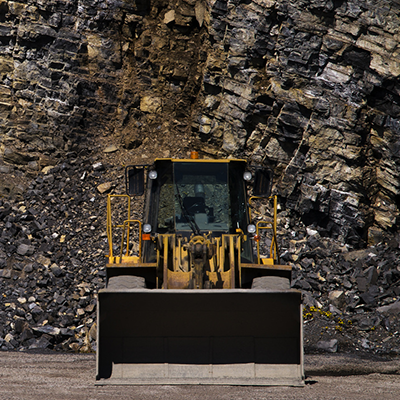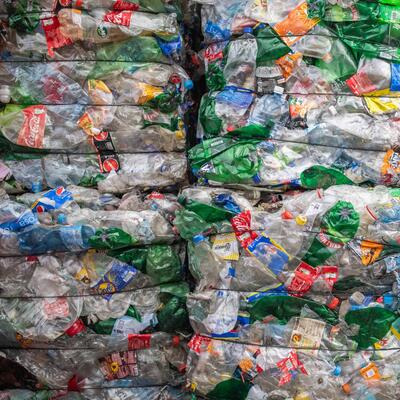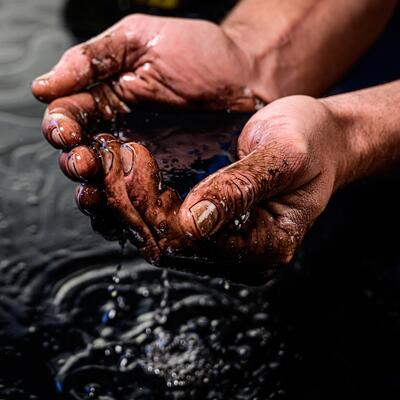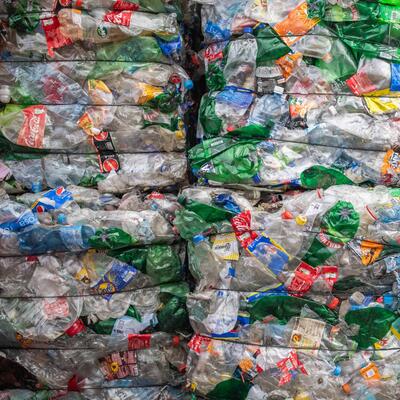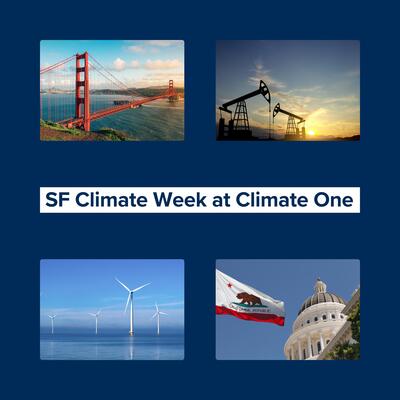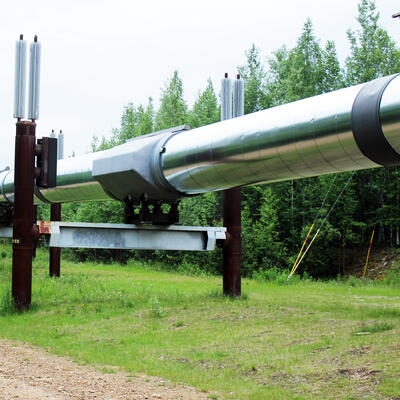
Pipeline Paradigm
Guests
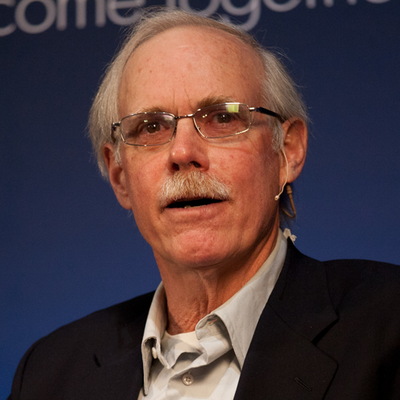
Samuel Avery
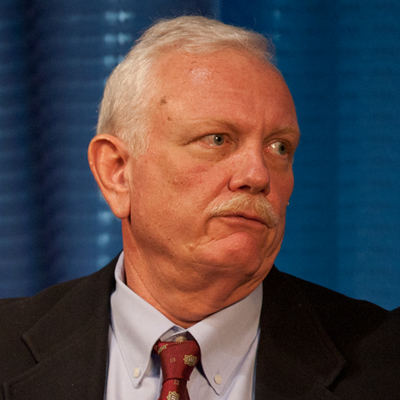
Gregory Croft
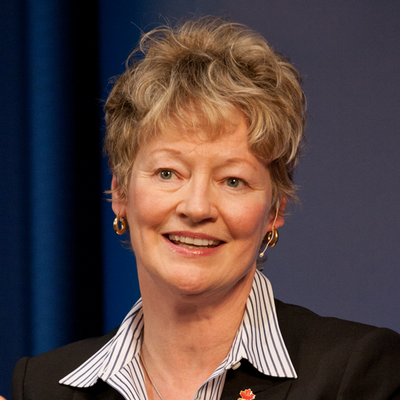
Cassie Doyle
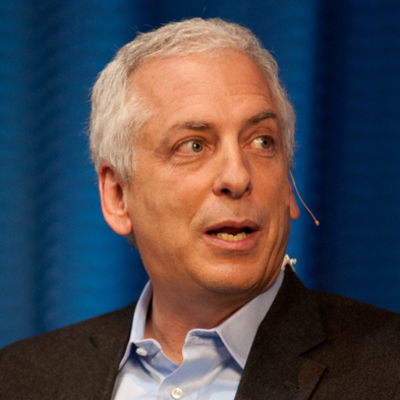
Dan Miller
Summary
Are the Canadian tar sands and Keystone XL pipeline huge economic drivers or climate killers? Pipeline supporters such as Canadian diplomat Cassie Doyel say it’s better for America to get its energy from Canada than unfriendly nations. But Sam Avery, Author of The Pipeline and the Paradigm, warns that there’s enough carbon in the tar sands “to send Earth’s climate into an irreversible tailspin.” Dan Miller, Managing Director of the Roda Group, looks at the long term saying “as a price on carbon kicks in, and it starts to build over time, the tar sands will be the first things that will be knocked off the list.” Greg Croft, Lecturer at St. Mary’s College of California, points out that “the carbon problem is global and we haven't solved any problem on a global basis.” A conversation on matching energy supply and demand in a carbon constrained world.
Full Transcript
Greg Dalton: Welcome to Climate One, a conversation about America’s energy, economy, and environment. To understand any of them, you have to understand them all. I’m Greg Dalton.
Today, we’re debating the Keystone XL and other pipelines' plan to deliver oil from the Canadian tar sands to refineries in Texas. The pipelines become a symbol the fierce debate over how to create jobs and the energy needs without wrecking the climate that supports life on earth. Supporters say Keystone and other pipelines will boost America’s economy and help replace oil from unfriendly nations. Opponents say building pipelines for some of the dirtiest fuels on earth commits the United States to a fossil-fuelled future and will accelerate severe weather. The Obama administration appears poised to approve the pipeline and is expected to issue a final decision soon.
Over the next hour, we’ll discuss Keystone and broader issues around oil markets and climate disruption. Joining our live audience at the Commonwealth Club in San Francisco, we’re pleased to have with us two people on each side of this debate.
Greg Croft is a lecturer in the Earth and Environmental Sciences Department at Saint Mary’s College of California. He’s also a veteran of the oil industry. Cassie Doyle’s Consul General in San Francisco for Canada and former Deputy Minister for Natural Resources. On the other side, Sam Avery’s author of The Pipeline and The Paradigm, a new book about Keystone XL, and Dan Miller, Managing Director of the Roda Group, a venture capital investment firm with investments in biofuels. We should also note, for disclosure, Dan is a contributor to Climate One. Please welcome them all to Climate One.
[Applause]
Greg Dalton: Welcome. Cassie Doyle, let’s begin with each of you and all of you to ask a little bit about how you came to the issue of the oil industry, in particular, the oil sands in your career, so welcome.
Cassie Doyle: Okay. Thanks. Thanks, and I’m very happy to be here and to be part of this conversation. I came to this issue really not with the oil industry, but I’m a long time public servant. I worked for the Department of Environment in Canada and Natural Resources Canada’s Deputy Minister. I also was old environmental regulator for the government of British Columbia, so I come from a pure public service background.
Greg Dalton: Sam Avery, you were a solar installer, and how did you come to write a book about a pipeline?
Sam Avery: Well, my interest in this pipeline really stems more from my opposition to mountain-top removal in my own home state of Kentucky, which also is the reason why I’m a solar installer there. But I am very passionately moved by the disturbance and the destruction of the earth itself in order to extract fossil fuels anywhere. And when I realized the extent and the size of this particular deposit in Canada, I was absolutely horrified, especially because of the dynamic of the climate. There is enough carbon in this tar sand deposit in Western Canada to send the earth’s climate into an irreversible tailspin that would make life itself questionable in the coming generations for plants, animals, and people. That’s enough motivating factor for me.
Greg Dalton: And we'll get into all of those. Dan Miller, as an investor, how did you get involved in the oil debates and climate debates as a -- I mean you’re a climate evangelist?
Dan Miller: Oh, we’ve been doing venture capital for a long time from the ‘90s and in Internet, things like that. And then I started reading about climate change in the ‘90s and in the early 2000s, started working with Chabot Space and Science Centre-- I’m on the board there-- to do climate programs. Started reading and talking with climate scientists and I became aware that this is both one of the biggest risks we have ever faced but also addressing it as one of the biggest economic opportunities, and then we switched our firm to investing solely in clean tech from about 2005 to now.
Greg Dalton: Okay. Great. Greg Croft, you are a veteran of the oil industry. Tell us how you came particularly to the oil sands and related issues?
Greg Croft: Okay. You know the -- my involvement with the oil industry goes much further back than my involvement with the oil sands. I went to work in the oil industry since I finished my master’s degree back in 1983, worked a number of years in a number of different countries, but never worked on the oil sands. Then back in 2006, I decided to go back and get a doctorate degree, qualified myself for teaching college level at U.C., Berkeley, and I ended up getting into some discussions with people there. Actually, in the nuclear engineering department, they were looking at the issue of using nuclear power to generate steam for production of this heavy oil in the oil sands area, so I ended up giving some talks on the oil sands at Berkeley. One thing sort of led to another, and I got to be kind of a regular speaker of it on the subject at both the Canadian Studies group at Berkeley and various other professional association type meetings here in the Bay Area.
Greg Dalton: Okay. So, let’s talk about the issues here that we’re going to talk about -- the pipelines as well as the oil sands that would go into it. Cassie Doyle, lay out for us the case why Keystone pipeline, in particular, is good for America and good for Canada?
Cassie Doyle: Well, I don’t want to overestimate the Keystone pipeline, but the overall energy relationship between Canada and the U.S. is one that delivers economic benefits to both countries as well as -- I'm just saying economic benefits as well as energy supply and energy security, so I mean we have -- Canada and the U.S. enjoy the largest bi-national trading relationship in the world. We have highly integrated economies. We -- over the last like 15 years, Canada has become the largest supplier of energy to the United States, and that has prosperity benefits for both countries. So in terms of the government of Canada’s position, we see that there’s -- that it makes the most sense to have this North American integrated like energy system as opposed to some of the alternatives. So that’s kind of the highest level in terms of the benefits.
Greg Dalton: And you're saying that it’s better to get oil from Canada than from Venezuela or other Middle East countries that may be less friendly toward the United States? Buy from your friends rather than your enemies, right?
Cassie Doyle: Yeah. Buy from your friends and also buy from a country that has the identical climate change commitment that was signed in Copenhagen, the same climate change objectives and goal as the United States, so we have a highly aligned regulatory system on areas like vehicle efficiency, so we do have, I think, the same aspiration. So it’s not only are we friends, but we have comparable environmental regulatory systems, and that differentiates Canada from any other supplier of oil to the United States.
Greg Dalton: Sam Avery, let’s hear your thought on Canada as a friendly oil supplier. Isn’t it better to buy from our neighbors than our enemies?
Sam Avery: Yes, it is. And I would not refute any of the economic reasons for this pipeline or any of the economic reasons to extract and to burn tar sands. It will produce jobs, a few. It will produce tremendous new investment opportunities, and it will produce hundreds of thousands of new barrels of oil into the world economy. I don’t dispute that, but this is much bigger than an economic problem. We’re talking about the living system of the earth that we all live on. And if we build this pipeline for economic reasons, it will be because our understanding of the natural world that we are all living in is limited by what I call the economic paradigm.
The economic paradigm assumes that economic growth is the primary purpose of human society, and it treats consumer demand as a given. You’ll notice that a lot of the reasons for the pipeline are that if we’re going to get burned oil, we might as well get it from a friendly country. If we’re going to ship tar sands, we might as well ship it efficiently by a pipeline rather than a railway. These are true, but if we limit our understanding to the economics, we’re going to lose sight of the real problems and the real trouble we’re going to get ourselves into if we blindly follow our appetite, rather than our intelligence about what we’re going to do.
Greg Dalton: Dan Miller, you’re an investor. You look at the economics. I’d like to hear your thought on the economics of the oil sands development in oil and also the alternatives. If we don’t burn oil, what are we going to use to run our economy?
Dan Miller: Well, oil sands are, I guess, one of the most expensive unconventional fuels that are out there right now, because it costs so much to squeeze oil out of the tar sands and then move it. But there are alternatives today. Some are technology alternatives like biofuels, which actually are about three percent, I think, of the U.S. fuel is biofuel today. It’s not the best stuff; it’s ethanol, but there’s a lot of really good stuff on the horizon using cellulosic materials, which means they won’t use food materials. They’ll use waste products from plants. That’s just a few years away; it’s already -- demonstrations already so those are alternatives, but there are much, much simpler alternatives. Everyone knows that climate change is a huge problem. The World Bank, the International Energy Agency, Pricewaterhouse Coopers, not exactly liberal groups -- say we're headed to a four-degree world on the path we are on.
Greg Dalton: That's Celsius. I mean --
Dan Miller: That's Celsius; seven degrees Fahrenheit, I should say. I should do it all in Fahrenheit. And Kevin Anderson, who's a climate scientist at the Tyndall Centre in the U.K., says about a seven degree Fahrenheit world that it's incompatible with an organized global community (think about what that means) is beyond adaption, (so you're not going to just turn up the air conditioner) will be devastating to the majority of ecosystems, and, probably, is not stable, which means it will lead to even higher temperatures.
So that's just absolutely unacceptable, and so burning -- so we need to find alternatives. The simple thing is to price the external cost to fossil fuels by putting a price on carbon. That alone, in some of the models of carbon prices that would give all the money back to the public, that would reduce oil consumption by six times the amount of the Keystone pipeline. So there, that would stimulate the economy, drive investment and innovation. So there, there's technology solutions, there's policy solutions that can solve this problem, and we just need to sort of have the -- we have to do it; we have to actually do it.
Greg Dalton: We're going to get Greg Croft in here in a minute, but first, Cassie Doyle, do you -- your response to the notion that burning the tar sands is going to create huge climate consequences, the carbon intensity of this massive carbon deposit in Alberta in Canada, that burning that is going to make climate change worst.
Cassie Doyle: Well, you know, when you look at this paradigm that Sam's mentioning between the economy and one that is much more responsive to the environment, I think what's intervening in that is regulation policy in technology. And I think that when we -- it's how that oil is extracted and how it actually is brought to market. And one thing that often gets neglected in this discussion is that the environmental performance of that extraction continues to improve, and it's -- it improves, because there are governments -- both the government of Alberta and the federal government in Canada -- that have increasingly stringent environmental regulation.
So we need to understand what we're talking about -- that Canada has the third largest reserves of oil in the world after Saudi Arabia and Venezuela. So when -- if we isolate and focus only on the oil sands, I think it's a bigger question around all the fossil fuel in the world, because we're number three, but we do have -- of those top three countries -- the strictest environmental regime that will continue to produce oil in a way that drives down climate change, GHG emissions and inputs, such as water, and, overall, energy. So I think you've got to look at the overall picture and not just -- I don't know whether it makes sense just to isolate one reserve in the world, because if Canada does not provide oil to the U.S., Venezuela will be there, Saudi Arabia will be there, so it's certainly -- it's not as if we somehow can solve the real challenges of climate change in this world by turning off the supply from Canada, because that oil -- there's going to be oil coming into the U.S. --
Greg Dalton: Because --
Cassie Doyle: -- from some source.
Greg Dalton: -- because we demanded, and the State Department, which approved the Keystone pipeline initially, said that the tar sands oil is 17 percent more dirtier than conventional oil. Let's get Greg Croft in here on that. It's about -- it is -- and that's a magnitude of the comparison of the oil sands versus conventional oil.
Greg Croft: Yeah. That's about right. We -- there've been a number of studies published. The numbers I've seen range from 12 percent to 17 percent. Those numbers though are based on the entire emissions form the initial production of the oil, converting it into fuel, and burning that fuel on the end. Some claims of much larger differences have been made by just separating the production process, but I would argue that this full cycle, where you're getting the 12 to 17 percent is the better way to look at it, because burning the oil is what we always deal with anyway.
Greg Dalton: And Dan Miller, I mean --
Cassie Doyle: But that's heavy oil to heavy oil, is there --
Greg Croft: Well, those other ones are talking about just production. We're talking about heavy oil to burning the gasoline at the end is 12 to 17 percent more than our weighted average barrel that's consumed in the U.S. and how it's produced and how it's refined, which gets to be a whole complicated subject in itself, because we're trying to do a weighted average of every we use.
Dan Miller: But we can do it simply --
Greg Dalton: Dan Miller.
Dan Miller: -- because it's true that oil sand or tar sands oil is less -- it takes more energy to get it out. But ignoring that, the amount of carbon in the tar sands is about 230 gigatons and to give that -- to put that in perspective, the National Research Council said that mankind can burn a thousand gigatons in total to have a 50-50 chance of staying below two degrees Celsius, three and a half degrees Fahrenheit -- the number that all governments -- Canada government, U.S. government -- all governments agree we'd better not go over, and there's really good reasons not to go over that number. And so that leads -- we've already burned 500, roughly; that leaves 500 to go. The tar sands are 230, and there's enough of conventional coal and all those other things that we actually have to leave most of that in ground to have a chance of avoiding catastrophe, really. And so there's -- I know it's a very complicated subject, but we need to immediately and dramatically lower fossil-fuel emissions, and it's very hard to do that while you're actually increasing them. So somewhere, we have to stop increasing them and actually go down, and the tar sands is a great place to start.
Greg Dalton: Dan Miller is a venture capitalist with the Roda Group. We're talking about the oil sands and the Keystone pipeline here at Climate One, and we're going to --
Cassie Doyle: Sorry.
Greg Dalton: I think turn to a commercial. So -- but isn’t it -- Cassie Doyel made a point earlier that basically we're picking on Canada, that it's part of the whole system. There's Venezuela, there's Saudi Arabia, and, ultimately, it's all of us who drive around on our cars and fly on planes -- we are the problem, because we are demand. Sam Avery?
Sam Avery: Right. And this is a very important point. We really shouldn’t be picking on poor Canada, and we apologize.
[Laughter]
Sam Avery: We shouldn’t be picking on the poor Keystone pipeline either, because these are just symbols of the overall problem. According to the Carbon Tracker Initiative, there is now, in proven reserves around the planet, three to five times as much fossil fuel available as we need to raise -- than we would need to raise the climate, two degrees Centigrade that Dan was talking about here.
Greg Dalton: Which is the dangerous level that the world --
Sam Avery: Right.
Greg Dalton: -- that's all the world has agreed to.
Sam Avery: Right. So the world has been able to do nothing about carbon emissions, but at least it has agreed that we have to keep climate change within two degrees centigrade. And we have five times as much fuel as we need to do that right at our fingertips, proven reserves. So what this means is we used to think, years ago, that we were going to run out of fossil fuel; we're going to run just about the time that we really need to get off it for climate reasons. But that's not going to happen; we're not going to run out. And instead of investing in renewable energy, carbon fuel companies have invested in new techniques and new deposits of extracting more and more fossil fuel, like fracking, like oil shales in North Dakota and like the tar sands in Canada. So it means that the economy is not going to solve this problem for us. It's not going to price fossil fuel out of the market. We are going to have to decide where, when, and how we're going to stop burning this fuel and use something that we can live with and that we can build a future on.
Greg Dalton: Cassie Doyle, Canada's actually done some of that, and, particularly, British Columbia has put a price, a tax on carbon. It didn’t ruin the economy. British Columbia, in many ways, is a very vibrant for clean technology.
So... Canada's going -- doing some really dirty things in one part of the country but some very clean and green things in other parts of the country. Tell us about British Columbia.
Cassie Doyle: Well, British Columbia, actually both western provinces, British Columbia and Alberta, both have put a price on carbon. In British Columbia, it's a revenue neutral carbon tax. And that has been quite successful. It's been in place now -- I think it's up to -- about five years and is widely accepted in --
Greg Dalton: But business screamed and said that, you know, “The sky's going to fall,” but it's actually turned out okay.
Cassie Doyle: In the first [Crosstalk] that's right. It turned out okay, and it actually hasn’t had any -- if anything, it's actually been instrumental in seeing a clean tech industry grow in British Columbia, so it's actually been quite positive. In Alberta -- Alberta was the first jurisdiction in North America to put -- to bring in a regulation to drive down the carbon intensity of oil and gas production, and there has been about a 26 percent improvement between 1990 and 2000 and -- or 19 -- somewhere in the last 20 years. That continues to improve. For those companies that cannot achieve the required reduction, they pay in to a fund at about $15 a ton now, which is one of the highest carbon prices in the world. And that fund is dedicated to technology investments to reduce the overall carbon footprint of the oil sands. So there has been -- both at the provincial level -- we have Feed in Tariff in Ontario; Quebec has just signed on to the Cap and Trade Program with the government of California, so there is a fair amount of activity happening in Canada. And at the national level, we are also -- we have brought a regulation in to put an end to all coal fired electricity that is done in the traditional method. And we have a very clean electricity system in Canada, which is actually -- makes us unique. About 63 percent of our electricity is produced by renewable, because we have this abundance of hydroelectricity in Canada as well as a very active wind and solar industry that the government has supported.
Greg Dalton: So a lot of things happening, but it seems that there's so much money in the oil sands and investment, that that money's going to be extracted. It's going to find the market, and it's a huge economic driver. It's hard to resist.
Cassie Doyle: Well, one thing is that it's one of the major concentrations of oil production that is in an open-market economy. So when you look at the top three producers -- Saudi Arabia, Venezuela, and Canada, Canada is distinct in terms of having a very open liberal economy, and so the investment -- it attracts investments from all around the world into the oil sands, where it's not possible in other countries that hold major reserves, because it's more sovereign funds and their own countries are investing in countries such as Venezuela.
Greg Dalton: And as you look at the international regime, where there's a price on carbon, and countries are held accountable for their carbon, Canada is basically exporting its carbon, right?
Cassie Doyle: Uh-hum.
Greg Dalton: So it's going to -- it's burned somewhere else, so we're burning here in the United States, and Canada's like, "Well, hey, we filled it, but you smoked it, so you know…"
[Laughter]
Greg Dalton: Sam Avery?
Sam Avery: A quick -- a very quick point -- a quick point on that is that Canada has improved its efficiency for the extraction of tar sands and is continuing to improve the efficiency of the energy intensity of extracting tar sands out of the ground. But the real carbon impact is when it's burned elsewhere, and that's still about 80 percent of the total carbon impact.
Dan Miller: And I think one thing that people don't really --
Greg Dalton: Dan Miller?
Dan Miller: -- understand is that climate change is unlike all other and certainly environmental problems but general problems that we face like water pollution. If there's a lake, and it's dirty, and you finally get around to cleaning it up, it eventually gets cleaned again, and you can use it. The CO2 that we're burning today stays in the atmosphere for hundreds to thousands of years.
And so the short-term economic benefit, which is very real, that we're going to enjoy right now is going to be a burden on generations for millennia, and that's something that makes it hard to think about. But that's why it's so urgent to make steps right away. The longer we wait -- it's not like well, we'll get around to fix it later. It's only going to get worst and worst and worst, and when we finally fix it, we're going to have to deal with how long we waited to fix it, and that's why we have to act now.
Greg Dalton: What would it take for the markets to address this, because it's kind of hard to think about environmentalists really stopping something so big and powerful? But at some point, the oil sands becomes economic. When price drops -- those oil prices drop at a little certain point at which point it's just too expensive to get at the oil sands. And so, and I guess Cassie and Dan, where that point is and if that's -- are there scenarios at which the oil price could dropped to a point where those people in Alberta saying, "Well, we just can't this stuff out of the ground, 'cause it costs too much." Dan Miller?
Dan Miller: Well, yeah. The price on carbon -- it's the most expensive oil to get right now. There may be some Arctic things that are a little more expensive, but it's -- so as the price in carbon kicks in, and it starts to grow over time, the tar sands will be the first thing that'll be knocked off the list. And therefore, actually, that's another good reason not to build the pipeline, because you're going to waste a lot of money. There's no question ten years from now. Everyone will be very aware of climate change and will demand action. And this thing is supposed to last for 40 to 50 years, this system, and we'll have to dismantle it then anyways. So it's a good thing to kind of save some money and not build it in the first place.
Greg Dalton: Cassie Doyle, at what point does --
Cassie Doyle: But one thing is there is thousands of miles of pipeline that traverse our two countries.
Greg Dalton: Already?
Cassie Doyle: Already -- that are in place now. And there's also kind of work arounds now without a pipeline than oil is come -- being transported by rail and can go into Oklahoma and then pick up this big intensive network of pipelines in Oklahoma down to the Gulf Coast. So the one pipeline project -- whether it's built or not -- I don’t think has any material difference on the future of climate change.
When you're saying that the majority -- we're exporting emissions, every country that produces oil is exporting emissions. Canada, in no way, is unique in that respect, and the U.S. can source its oil from all over the world. And in fact, the Keystone, the heavy oil that we're talking about that's coming out of the oil sands is -- and the State Department report clearly identifies that it is required to maintain that refineries on the Gulf Coast that were built for a special purpose to refine heavy oil. And that that would replace Venezuelan oil and some of the declining reserves coming out or heavy oil out of Mexico and California. So there's already heavy oil, heavy crude being refined in the Gulf Coast and this oil coming in from -- whether it comes by pipeline or comes by rail -- because this industry will find a way to work around as all industries will and as long as there's a demand, they're going to be feeding that demand.
Greg Dalton: If you're just joining us on the radio, Cassie Doyle is Consul General for Canada in San Francisco and former Deputy Minister of Natural Resources in Canada. Our other guests today are Greg Croft, a lecturer at Saint Mary's College of California; Sam Avery, author of The Pipeline and the Paradigm; and Dan Miller, an investor and capitalist in -- venture capitalist in Silicon Valley. We've got -- Greg Croft, you've been waiting to get in here.
Greg Croft: Yeah. I wanted to make a point on that issue about if we raise a certain carbon price, which fuel will drop off at which point, because I think you'll find both from a desirability from an environmental standpoint, and the first thing that would drop off if you had -- if you could somehow produce a carbon tax and apply it uniformly over the whole world, the first fuel you're going to drive out is coal. And the reason for that is it is used for less valuable application to generate electric power. Oil is mostly used as transportation fuels. But you could see -- look at how people complain, say in the summer of 2008, when we had our all-time record gasoline prices here, they still grow, but they still consumed it.
In fact, they consumed more of it than they're consuming right now. And so you're actually -- if you bring up carbon prices till you start backing out on fuel, the first fuel you're going to back out is coal. But if you look at the argument that say if there's less pipeline capacity, you're not going to produce the heavy oil in Canada just on a basis of Keystone XL, if you look at what happened in the U.S. when we have reduced the amount of coal we burned for power in the U.S., in the Eastern U.S. in favor of natural gas, that surplus coal has been exported to China. So coal is still being produced that changed from a coal-fired power plant to a gas-fired power plant. The power plant operator is saying, "Look how much I've reduced my carbon emissions." But the carbon problem is global. And we haven’t solved any problem on a global basis, because that coal is just going somewhere else and being burned.
Greg Dalton: Dan Miller, let's have your response to that and also at Cassie Doyle's point that stopping the Keystone pipeline will achieve nothing.
Dan Miller: Yeah. By the way, I meant what I said this could knock it off. I thought we're talking about transportation fuels, so that's all right. That's what I meant. You're right. Coal is for electricity, but it's not used, hopefully, not for transportation fuels. It's very bad if you convert coals to liquids. So the pipeline is -- first of all, it's about rail transport. I mean it's been shown in studies and actually, the TransCanada itself said we need the pipeline in order to increase our output, because the rail costs too much, right -- because it's already starting as a costly way to get it out of the ground. You had rail, which is like twice as expensive as the pipeline. It makes it not as economic, and therefore there won't be as much taken out. And also the pipeline itself -- some people argue that it's a relatively small amount of this 230 gigatons that are on the tar sands, and that's true. But it's still enough to power, I think, all the cars and trucks in Canada, so it's not a small amount of oil. And yes, you can argue, we're going to get it somewhere else, but those -- the conventional oils are drying up, which is one reason we're going to what's called unconventional oil like tar sands.
But we have enough of the conventional oils to -- what Sam was saying -- to bring us over the danger limit, and we're headed there really quickly by the way. And so going to unconventional oils is really should just be totally unacceptable. And we have to make a decision sometime. It's already too late probably to at least avoid -- but we are. It is already too late to avoid. Climate impact, we're seeing them today. But to really keep going down that path from now on, knowing what we know is probably really a moral issue more than an economic issue.
Greg Dalton: So Cassie Doyle, what's the path to avoid those kind of impacts? You see countries doing different things -- some dirty, some clean. What do you see as the path to avoid the dangers that both Dan and Sam has laid out today?
Cassie Doyle: Well, I see it from the perspective of how you set higher efficiency and environmental standards in the overall energy system, because when -- if Dan, you say it doesn’t matter if we get it from somewhere else, I would argue it does matter where it comes from. And this campaign on Keystone has been directly focused on Canada, and yet California produces heavy crude oil that has a higher carbon intensity than Canada. So I'm just saying that -- and Venezuela is right now a major supplier to the U.S. of heavy crude oil with an equal carbon intensity to Canada. But what I see as a pathway is to address demand, which this president -- administration is doing, and Canada is aligned in a movement to try to increase by a, I think, 50 percent the efficiency of our -- one of our major components or contributors to GHG emissions is transportation, so to clean that fleet is really important. Canada and the U.S. are aligned. We're the only two countries that are working on those very efficient light-duty and heavy-duty fleet standards. I think it's really important all -- in terms of the efficiency as well as increasingly stringency in terms of the safety of pipelines, so that the Keystone pipeline would have 57 additional conditions that will make it the safest pipeline that's ever been built.
So they're continuously trying to improve the overall environmental performance as we move towards who knows what the future is. These pipelines and these investments are all private investments, so they're being made on the basis of an open market as I'm saying. And as you're -- as an investor, Dan, you know that they're looking at what the actual demand in the market's going to be, but impacting and having an influence on how energy is used, I think is really important.
Greg Dalton: So we can keep using fossil fuels. It sounds a little bit like saying, we can keep smoking, but we should put filters on the cigarettes --
[Laughter]
Greg Dalton: -- or just how we'll make it less bad and it'll be okay, and we'll die more slowly rather than die faster. Sam Avery?
Sam Avery: Well, to continue that analogy, it's like saying, "Well, this particular cigarette isn’t gonna kill me, so I might as well burn it." Or --
Greg Dalton: Right.
Sam Avery: -- no, "If I don't smoke it, somebody else will."
[Laughter]
Sam Avery: "So I might as well smoke it."
[Laughter]
Sam Avery: I mean you can get -- the mind forms all kinds of rationalizations for consuming things, but the bottom line is that this deposit in Canyon, in Canada is measured in the trillions of barrels --
Greg Dalton: Okay.
Sam Avery: -- of tar sand. It's enough to do the job. There's enough carbon in that deposit alone that we have to be careful about it. We have to decide consciously whether we're going to follow our appetite or whether we're going to follow our intelligence about making the decision. Do we tap into this new enormous source of carbon, or do we invest our money in renewable sources?
Greg Dalton: And a lot of people have invested in renewable sources including Dan Miller. And you have to admit that biofuels had been disappointing. We've had lots of people here who said biofuels are going to do great things. You can drop them in, put them in your cars, existing refineries, and they -- Dan Miller, they haven't delivered on some of their heightened promises.
Dan Miller: Well, there's a general thing in the technology field in general that people overestimate the impact in the short run and underestimate the impact in the long run. That certainly applies to this field as well. Everybody wanted it next Tuesday. It takes a little while. There's people working on these enzymes for cellulosic use of plant material that have taken a few more years, and they thought -- but actually, even Zolazyme has run 500,000 litter tank of oil development. It was the largest ever I believe, and they're building new plants and things like that. There's other companies that are actually coming on line, so it's been a year or two longer than they thought. But that's not -- that's still a drop in the bucket compared to --
Greg Dalton: And Solazyme is focusing more on cosmetics and oils. These are -- that are low volume, high margin where they can make more money.
Dan Miller: Well right now, but yeah -- but actually the problem actually -- one problem is that fuel is the cheapest thing you can make. It's about the same price as bottled water. When you think about it, it's like $3 a gallon, right? Go in a store and buy a bottle, a big gallon of water, so -- and there are other oils that are more expensive, but still by the way harm the environment quite a bit like palm oil and things like that. So they're going to focus on the ones that can have the biggest economic impact in the short run as they build up capacity and as these other companies build up capacity. So that is an alternative, but there are other alternatives, by the way. Electric cars -- if -- really people shouldn’t be driving personal transportation with gasoline, I mean, an electric car is better than a gasoline-powered car in every way except for range and price, and those two things are getting better quickly. In a few years, everyone will be looking back and going why were we doing this. It's not true for airplanes, trucks, and heavy equipment. We're still going to need liquid transportation fuels, which have very high energy density. And that's when by improving the efficiencies of those scale, we can still burn the oil that we have but not find new ones and scale it down as we scale up the other.
It's not that tomorrow biofuels are going to replace fossil fuel, but over time, we have to have a plan for moving downward. As they say, so we have a climate problem; it's a big problem. And say, we're in a hole. And as they say the first rule of getting out of a hole is to stop digging, so that --
[Laughter]
Dan Miller: -- so the Keystone pipeline is more than just a pipe of fossil fuels coming into our country. It is a symbol, too. We have to make the change some time. We should have done it 20 years ago, but if we don't do it like in the next -- according to Jim Henson on this stage -- that we have three years left to begin reducing fossil fuel emissions globally, or we won't have a stable climate for our children. Three years left. So if we don't start now, when are we going to do it?
Greg Dalton: For you just joining us, you're listening to Climate One. We're talking about the Keystone XL pipeline and the oil from Canada. I'm Greg Dalton. You can follow us with the Twitter handle @climateone. Sam Avery, it's not happening fast enough.
Sam Avery: It's not. And I think we can do it much more rapidly. Something Dan was talking about made me think. I'm a solar installer, and an example of an alternative form of energy is a single solar panel, 250-watt solar panel, will produce about 1500 miles of driving per year for 30 to 50 years. One solar panel, 1500 miles of driving, every year for 30 to 50 years -- put 14 of them on your roof, and you've got 21,000 miles of driving a year. Now, that'll cost you $12,000 to $15,000. And it's all upfront; you've got to pay that all upfront. But if you do that, you will be driving for, at most, 2.2 cents per mile for 600,000 to a million miles. And this is about eight and a half times less than you're spending for gasoline right now.
So over the lifetime of the solar panels, you will save a hundred thousand dollars and more, and you won't need a tar sands pipeline.
Greg Dalton: Greg Croft, you're a lifelong oil man. Do you see a prospect in electric vehicles or biofuels?
Greg Croft: I think electric vehicles are actually what's it going to eventually be say a hundred years down the road, because if we gradually consume more and more fossil fuels, the cost gets to be an issue, availability gets to be an issue. If you look at world oil production, it's been pretty flat since about 2005. Then what's happened actually is consumption has declined in the United States, as places like China and India have increased their production. So if we're going to count on continuing to have our entire transportation system driven by liquid fossil fuels, which is essentially the way it works now, you're sort of making a cap and saying for some countries to come up, others have to come down, and that's going to be a big challenge. But when you look at the volumes of energy we consume now, that's a cautionary note on biofuels. Just America's oil energy consumption exceeds the energy content of all the food produced in the world for everybody. And if you look at a lot of promises have been made about cellulosic biofuels, a reasonable proxy for cellulose production in California is a historical timber production. California's timber production reached its historical peak in 1955 and has declined hugely since then. California's oil production didn’t peak until 1985, and so these so called renewable resources, if they're extracted at several times the rate of which they renew themselves end up backing just like non-renewable resources. That the problem -- and I think has actually come around with all the panellists, whichever side of this we're all on -- gets back to the volume of consumption. As long as we're -- and that consumption, when it comes to fossil fuels, is what drives the total carbon emissions. And as long as the whole world consumes more and more of this, the carbon emissions are going to increase.
Greg Dalton: Greg Croft is a lecturer at the Saint Mary's College of California. I want to talk about another pipeline, the Trans Mountain pipeline. And this thing's like there's all different ways that this oil from Canada is going to try to get to a market, get to the ocean where you can get the world price. Some of that's through the east, some of that's through the south. There's a pipeline that the San Francisco Chronicle, David Baker, wrote about recently. Many people hadn’t heard about that actually it could bring some of this oil to California. Well, Cassie Doyle, tell us about that plan to expand that. The people in British Columbia are not so happy about it, but there are plans to get another pipeline to the west from the oil sands, and some of that will come by ship into California.
Cassie Doyle: Right. And in fact, right now, California does receive oil coming out of Canada.
Greg Dalton: Two or three percent of California --
Cassie Doyle: California oil's --
Greg Dalton: --oil.
Cassie Doyle: -- coming from Canada, and it's increasing as the oil from the north slopes of Alaska is declining. That's a lot old -- a well-established pipeline called the Trans Mountain. It comes out of Northern Alberta through British Columbia, and its terminal is in Burnaby, which is just outside of Vancouver, and that there are plans -- that's run by Kinder Morgan -- there are plans to expand the capacity of that pipeline. That's what's under review now. That pipeline has been running -- I think it's 25 or 30 years or so, so it's pretty well established. There are also other plans to bring a pipeline through a northern corridor up, through the Northern British Columbia that would be essentially for Asian markets.
Greg Dalton: Though there's an election in British Columbia next month, and the leading candidate for Premier of British Columbia, Adrian Dix, has been quite stridently opposed to that. So it seems like there could be some -- these are political issues in Canada as well the United States and looks like the people who are more opposed to that pipeline might get in power in British Columbia.
Cassie Doyle: Yeah. That's quite true, and there certainly is no end to politics around climate change in both of our countries I'd say.
Dan Miller: Because one reason that Canada --
Greg Dalton: Dan Miller.
Dan Miller: -- wants to put these pipelines is -- especially at the Asian markets and the Keystone to get to the Gulf -- is that there's sort of a glut of Canadian oil in the mid-part of our country, and I think it's a $20 discount to the global price of oil, so they don't like getting the discounted price; they want the world price. And so, actually, there's a lot of people say that the Keystone pipeline will actually raise the price of oil in the United States by like four billion a year is what I read, because then once it's down to the Gulf, then if we don't pay the full price, then it could be exported to different countries at the global price. So that's another thing, I mean, it's always been argued that it's a great thing for the United States. I mean I know we're taking advantage. And by the way, I should say, if you take Canada, and Cassie actually especially does a great job of promoting clean energy, as a clean tech investor, we have an investment actually in Canada, a clean tech company. And they're doing -- I think it's actually a better way to go for Canada to keep building up the clean tech part of the business than to keep working on the tar sands and exploiting that, although the dollars out there is very, very big.
Greg Dalton: Sam Avery, you wrote a book about the path of the Keystone pipeline. Tell us about some of the people you've met including Randy Thompson, a very colorful character in Nebraska who says water is clean or dirty. It's not red or blue. Tell us about...
Sam Avery: Okay. Randy Thompson is the face of Bold Nebraska, which is a group which is adamantly opposing the Keystone XL in Nebraska. And as I drove the -- drove, who knows, I used the car.
[Laughter]
Sam Avery: And that's part of the whole demand situation.
[Laughter]
Sam Avery: And I take responsibility for that, but I met Randy and many people all the way from Alberta, where the tar sands are, all the way down to Texas. Randy is a typical rancher in Nebraska in many ways. The pipeline is scheduled to cross his land, and he objects to it, originally, not for any sort of climate reasons, but because it went across his land, and because it's not -- this is not traditional crude oil.
It's sold as -- it's being marketed as another form of crude oil, but it's not; it's tar sand. It's -- yes, we call it oil sand. You can tell which side of the issue people are on, whether they call it oil sand or tar sand, but it's black, it's gooey, it's sticky, it's solid at room temperature. It quacks and it's a duck.
[Laughter]
Sam Avery: But at any rate, that's the reason why a lot of people are opposed to the pipeline along the route. Because if this pipeline breaks, and I know it's the safest pipeline ever built, but pipelines -- there's never been a pipeline that doesn’t break. And I was told that by a pipeline builder. So they are concerned that their ranches, their farms that they have invested their entire lives in are taking an enormous risk of being ruined for miles around. And his farm is actually near the Ogallala Aquifer, which I'm sure you've heard about before. When I was there in Nebraska last summer, it was an enormous drought. An enormous hot weather spell was climate change in action, and the surface waters had dried up. The Platte River was gone, no water at all in it. Everybody who survived the drought last summer tapped into the Ogallala Aquifer to irrigate their crops. It's that valuable to them that that is a life source for people in Nebraska and the other Great Plains states. They've very protective of it, and this is the issue for them.
Cassie Doyle: But can I?
Greg Dalton: Cassie Doyle.
Cassie Doyle: Just to add, you know that the Ogallala Reserve is crisscrossed by hundreds of miles of old pipeline now.
Sam Avery: Not tar sands pipeline.
Cassie Doyle: Well, and really the science now and we're -- has not proven that there's any noticeable difference between the two when it comes to the impact of spills.
There is now an increase in the amount of oil being transported by rail, and there is -- there's projections that it could be up to half a million barrels per day going out by rail that will be crossing across a lot of farm land over both countries that has a higher incidence of safety issues.
Sam Avery: That's a risk, too.
Cassie Doyle: That's a real risk, yeah.
Sam Avery: There's no doubt. They're both risky.
Greg Dalton: One note, there was a well-noted case in Kalamazoo, Michigan when in 2012 the U.S. federal government fined Enbridge, a Canadian pipeline company, almost $4 million for a spill that occurred there. They closed 35 miles of the Kalamazoo River for about two years after spilling a million gallons.
Greg Croft, there are some differences between dilbits, the tar that comes through the pipeline, and conventional oil. We've seen that spill recently in Arkansas, so tell us the difference between tar sands. Some people say it sinks in water; it's a different kind of animal than regular crude oil.
Greg Croft: Yeah. There's actually -- when we talk about -- when we have conventional crude oil is produced, pumped through a pipeline, you separate the oil from natural gas. Once you've removed the gas phase, you pump it through a pipeline. And that works pretty simply. What you have to do with the tar sands oil, because of the viscosity of it when it's produced, it will not go through a pipeline unless it's hot. So what you do is you either put in a diluent to reduce the viscosity. What they use is naphtha; naphtha is the very lightest product of a refinery. It's lighter than gasoline, and you mix this with this really heavy tar -- tarring material. Then when it gets to the receiving end at the refinery, they actually just run it through a hot chamber, boil off the naphtha and pipeline it back to a much smaller diameter pipeline. And that's what's called the dilbit. Then there's what's called sinbit, where they take a refined oil and mix it back with the crude oil in order to once again reduce the viscosity so that it can be put through a pipeline.
Greg Dalton: And doesn’t this stuff sink; it reacts differently in water?
Greg Croft: The original bitumen will sink in water. What happens with the dilbit if you spill it?
At first, it’s lighter than water until the naphtha evaporates off, and the biggest concern about a spill like through in that town in Arkansas is both breathing the fumes and the potential fire hazard from the naphtha, not the -- not necessarily the heavy oil, but the actual dilute is the bigger half of the problem.
Sam Avery: And are they not --
Greg Dalton: Sam Avery.
Sam Avery: -- spilled -- pick up the spill in Michigan -- Kalamazoo, Michigan?
Greg Dalton: Yeah. I think some of that's still on going. We're talking about the Keystone pipeline and oil sands here at Climate One. I'm Greg Dalton. We're going to invite your participation and put a microphone right here. And again, as Sarah said, if you are on this side of the house, please go around to our producer, Jane Ann, right there, and invite your participation with one brief, one part question. I'm happy to help you keep it that way --
[Laughter]
Greg Dalton: -- and welcome you to -- let's have our audience question. Welcome to Climate One.
Female Speaker 1: Good afternoon.
[Laughter]
Female Speaker 1: Thank you very much for a fascinating discussion with so many good points of view. I have a question for all of you including you, Greg. You mentioned that the State Department has prepared an environmental impact statement on the Keystone pipeline. Has any of you read the Environmental Protection Agency's comments on this EIS? And if so, would you like to say a few words about that?
Greg Dalton: I read the letter recently. I'm not sure I understood it. They said the State Department didn’t do enough and that some of their assumptions were wrong, that the impacts could be greater. Who else would like to tackle that? Dan Miller?
Dan Miller: I agree. I mean I read the summary of it and I agree. And I think they took a look at the argument that, "Hey, we're gonna get it there one way or another,” and said this is not a valid argument. By the way, you can just fight anything badly if you just say that. So it's -- but that the EPA -- it's really interesting to see that within our own government there's different departments thinking different stands on this.
Greg Dalton: And there's been some very cozy relationships between some of the contractors doing the work for the State Department who previously worked for Trans Canada, the company building the pipeline.
Let's have our next audience question.
Male Speaker 1: I agree with the comment that the price of gasoline is about the same price of water. And I noticed a few years ago when the price of gasoline was a little bit over $5, people started seriously considering getting rid of their SUVs, maybe better land-use planning, walking more, riding bicycles, things like that. And then once the price of gasoline dropped below $4 it was all -- people just stopped talking about it. So I've thought for a long time, although I wouldn’t tell my friends this, that I think gasoline should be $10 a gallon, because that's the only way you're going to get people's attention about riding bicycles, having land-use planning, so you can walk to grocery stores, things like that. But how likely is it that we're going to get to $10 a gallon in this country or something near that? And even if we did, the rest of the world could just say, "Fine, we're gonna sell gas for $2 or $3 a gallon, and it really wouldn’t help the overall carbon levels." So, I guess --
Greg Dalton: Thank you.
Male Speaker 1: -- yeah, my question is how likely is that we're going to get it up [Crosstalk].
Dan Miller: Well, it is $10.
Greg Dalton: Dan Miller.
Dan Miller: In Europe it's already eight, I mean, it's getting close to $10 a gallon, and they put out -- the average European, I think, puts out half the CO2 that the average American does. And they actually have a very nice lifestyle for all the jokes we make about it here, but you know -- so it's true that that's a great way. And the carbon price is a way to address that. They actually just have gas taxes. They didn't do it for the carbon originally, but a carbon tax would raise the price, make alternatives cheaper. We would use less, get higher efficiency cars. We wouldn’t need the pipeline, because we would save far more fuel than the pipeline delivers.
Male Speaker 1: But it would take a big carbon price to get it up to $10 a gallon, [crosstalk] any of carbon prices people are talking about right now...
Dan Miller: That's right. But --
Greg Dalton: And Cassie Doyle, in Canada, gas prices are close to $10 a gallon.
Do people drive smaller cars? Does that -- how does that affect the vehicle sector contribution to greenhouse gases?
Cassie Doyle: Well, our overall fleet is smaller and more efficient in Canada than it is in the United States, and we have fewer cars per household and vehicle miles travel, so I think it does make somewhat of a difference, but not as significant, I think, as these new CAFE standards, I think we'll have a much more impact on vehicle efficiency.
Greg Dalton: Cassie Doyle is Consul General of Canada in San Francisco. Let's have our next question. Welcome.
Male Speaker 2: Hi, this question might be for Dan or Sam. If the Obama Administration approves the pipeline and expands the overall carbon fuel supply in the world, what impact might this have on the international climate negotiations and U.S. credibility particularly in an attempt to influence China's development, because they're the large emitter now, and perhaps that's really substantial?
Greg Dalton: Sam Avery, a thought on that?
Sam Avery: I'm not certain how it will affect our national negotiating position on international agreements. I'm not certain about that. But I -- if I can take your question and turn it a little bit, I would like to say that if the administration approves this pipeline, and it begins construction, there's going to be a lot of people negotiating from a very grass roots position on this, namely, at this point, 59,000 people have signed a pledge to resist this pipeline through civil disobedience, if necessary. I am one of them. Many of us will be going to the root of this pipeline, and we will stand between the earth and the destruction of the earth. We will be civil. We will be peaceful.
We do not mean to make Trans Canada our enemy. We are not their enemy; they are not our enemy. We will be respectful of their employees and of their contractors. We will be respectful of the local people and the law enforcement people that we encounter. But we will be firm, you shall not pass. We will -- we are ready to lose this particular battle, but we will win the hearts and minds of humanity, and we will prevail.
Dan Miller: But back to the --
Greg Dalton: Dan Miller.
Dan Miller: -- government's position, we don't really have any credibility, because we don't have any policy in place to eliminate carbons. So how can we go to China and say, "By the way, you really should cut back on your CO2 emissions, 'cause, you know, really it looks pretty bad." What are you talking about? If most of the CO2, the majority of the CO2 in the air is red, white, and blue, even though China is now currently putting it more out than we do on a yearly basis. But remember it'll last up there forever, so it's the total that matters. And so we have no credibility until we actually put a price on carbon. And then, by the way, if we just put a price on carbon, gave all the money back to the citizens, so everyone had money to pay for the higher fuel prices, and then put a border duty on products coming from other countries that don't have their own price on carbon, we would immediately get most of the world to have a price on carbon. So that's a way we can take a situation where we have no credibility to a situation where we can actually have effective and almost immediate impact on the situation.
Greg Dalton: Dan Miller is a clean tech investor. Let's have our next audience question in Climate One. Welcome.
Female Speaker 2: Yes. You just said we will win the hearts and minds of people, and everyone knows that we need climate change -- we need to help -- have the climate change for the better. And yet, everyone seems to be using logic, and logic doesn’t reach the reptilian part of our brain.
Dan Miller: Absolutely.
Female Speaker 2: So when you said, win the hearts and minds, and then Dan said before something about it's a moral issue, what if you change your arguments?
Because if you only have three years, you have to do this fast and reach people in a huge way like the cigarette campaign with the moral issue. I stopped smoking myself, but then you get -- people said, "I don't have the right to harm you with my smoke." And if you try to do accomplish the climate change that we need by a huge campaign of using the moral argument, I think you would reach people, because there's something wrong with using perfectly good arguments and nobody changes.
Greg Dalton: Thank you.
Female Speaker 2: You are not doing it the right way. And what is the right way?
Greg Dalton: Sam Avery, you write a person in your book that wants to make burning fossil fuels the equivalent of or the pipeline of apartheid in South Africa.
Sam Avery: Uh-hum. All right. Well, I don’t look at it that way myself, personally. I don't look at people who are producing and making fossil fuels available for us. They're not evil. They're producing what we demand. They're selling only what we buy. And so it's not a question of us versus them. This is not good guys and bad guys; we're all in the same boat here. And the big question we have to keep ourselves on here today and in general is do we extract yet more fossil fuel, do we keep going in this direction, do we invest billions and billions of dollars in infrastructure that'll bring us more fossil fuel, or do we invest billions of dollars in renewable energy, which will also produce jobs, which will also produce investment opportunities, which will also bring energy into our system. So it's a question of what kind of world are we going to start to build right now; one we can live in or one where we're going to make an immediate profit from.
Greg Dalton: Sam Avery is the author of The Pipeline and the Paradigm. Let's have our next question here at Climate One.
Male Speaker 3: And I’ll make this a very fast question. If this tar sands in Alberta is so huge and graftable, aren’t there other tar sand places they're going to be finding in the world than China?
Greg Dalton: Yeah. Greg Croft, you're the geology of petroleum expert here, Greg Croft.
Greg Croft: Yeah. All right. What you'll find, and those are the two largest deposits in the world by far, are in Canada and in Eastern Venezuela. They are similar in size, and it depends on whose report you're going to look at. The next biggest area of heavy oil is at the -- round at the upper end of the Persian Gulf and South-eastern Iraq, Kuwait, neutral zone, northern most Saudi Arabia. That's about 200 billion barrels or about one-sixth of the size of either of the Canadian or the Venezuelan heavy oil deposit. And of course when you talk about the Venezuelan heavy oil deposits here, but they are also going to be developed at some point in likelihood and use the same technology as Canada.
Greg Dalton: Test your mike there, Greg. Yeah. Thanks, that'll help. We're talking about the oil sands and Keystone pipeline. Let's have our next audience question.
Female Speaker 3: All right. Thank you. My question is kind of about the economic influences of big business and corporations since in America those entities do play a really big role in getting things accomplished. What do you see the role of big business in this debate as far as political or economic influences they could have to swing this one way or the other?
Greg Dalton: Can you take that, Greg Croft?
Greg Croft: Well, you've got big business on both sides. You've got big oil producers in Canada that include subsidiaries of U.S. majors like Chevron, Shell, and Exxon -- or Shell's a European major -- Chevron and Exxon that are in favor of the pipeline. You also have U.S. industrial interest that benefit from the delay of the pipeline because of this differential in price we've talked about.
The cheapest oil in the world is in the upper U.S. mid-west, which is an area of big center of heavy industry. So if you're going to build you oil consuming factory in Chicago right now, you get oil cheaper than if you build it in a Jebel Ali Free Zone in Dubai. You're break. If you choose Dubai, the reason you'll do it is because Dubai has no income tax, but you'll be paying less for oil in Chicago right now.
[Laughter]
Greg Croft: So there are a bunch of industrial interests that benefit users from delaying the pipeline, and if we shift the oil onto rail, this will, in particular, benefit Burlington Northern Railroad and it's single largest shareholder Warren Buffet.
[Laughter]
Greg Croft: So there are big industrial interests and very wealthy individuals on both sides of this argument.
Greg Dalton: So Sam Avery, any industrial interest secretly funding the activist trying to block the pipeline?
[Laughter]
Sam Avery: Well, I haven’t got my check yet.
[Laughter]
Cassie Doyle: Can I?
Greg Dalton: Cassie Doyle.
Cassie Doyle: Can I just add, because I mean the large energy producers who are -- come from around the world that are active in the oil sands have certainly or have formed a council to drive down the overall GHGs emissions associated with --
Greg Dalton: Greenhouse gas emissions.
Cassie Doyle: Yes, greenhouse gas emissions, so there is an oil sands innovation alliance and that -- so there certainly is a commitment and an understanding that to secure a social license with the export of that oil in North America, that is going to require a much more efficient way of processing it. So I think we should -- there is a fair amount of activity and investment in technologies now to produce that oil in the cleanest way possible.
Greg Dalton: Because they realize all the opposition they're facing. Let's have our next audience question. Welcome.
Male Speaker 4: Thank you. Thank you for the great panel. I wanted to ask something about the United States' national interest in this oil.
We are a net exporter of refined products of oil by about a million gallons a day. We have increased our exports by a factor of three since 2006. We have been producing a lot more oil in this country. So your oil, that is to say the Keystone XL oil, will be exported. It will not be here like Keystone 1 pipeline, which is refined in the Mid-West. So the Alberta government expects to increase its production (this pipeline is 830,000 barrels per day) to something between four and six million barrels a day. So we don't need this stuff. My question here is how many more pipelines do you expect to be approved by the United States government? And in general, where do you expect this oil to go, and how will it get there?
Greg Dalton: Cassie Doyle?
Cassie Doyle: Well, right now, the United States is importing about half of its oil and is consuming somewhere between 18 and 19 million barrels per day, and the State Department's recent report indicated that the oil coming in from the Keystone XL would be to displace current oil that's coming in from Venezuela and Mexico and some domestic, and it's all heavy. It's heavy displacing heavy oil. So the assumptions that this going to be exported, I think, are unfounded. They certainly were not found in the State Department. There is -- this country still, even though there has been an increase in production of oil, it's still importing relatively about half of the oil that's coming in. Much of it's coming in by tanker from other -- from the Middle East and from other countries in the Americas, and that is not subject to any kind of environmental review. So you know one of the things that you always have to mindful of is just what's the playing field here.
Greg Dalton: Though some people had said that there is some disclosure by their companies building a pipeline to their investors that the oil would be exported, because it gets a higher price. As we've heard, the oil price in the U.S. is lower than the international price, those companies naturally want to sell their oil to where they can get the higher price, right?
Cassie Doyle: Uh-hum.
Greg Dalton: And so, we've got to wrap it up here. Let's have our last audience question. Yes, sir. Welcome.
Male Speaker 5: Okay. I'd like to put a voice in for the electric car. I think it's the one thing that exists within our society today that is a solution for the world. If in fact our population could get convinced to do it and use renewable energy in our electric plans. But, I'm nevertheless a little bit depressed by the discussion today, because I suspect I'm older than all of you, and in fact, the decisions are to be made by people that are not going to be affected by the reality of what's going to happen with the CO2. And it's two or three generations down that may very well have their lives ruined in an irreparable way. And this message, I don't think, gets across particularly well on the point, and certainly economists don't talk about it particularly well, and I think our politicians -- they tend to have a memory that lasts for as long as their term exists so that I think we have a serious problem, and I think it really is a moral problem, and I think we need more moral input in order to deal with it.
Greg Dalton: We have to wrap it up quickly. Well, who'd like to tackle that? I mean, Dan, you've talked about future generations.
Dan Miller: Not three generations. It's our current children are going to be alive in 2030, 2050, 2060. This decade will be an exciting one. Now there's a Chinese curse, “May you live in interesting times.” Well, now we live in interesting times.
And so -- and by the way, I think there's some good news in that and that we're beginning to wake up. Hurricane Sandy helped us do it, the drought is helping us do it. There's going to be a lot of that happening this decade, and people are now aware. It's not like just -- it doesn’t seem random anymore. So hopefully, we'll actually take some steps, and there's some easy steps we can take right away that would have big impacts, help the economies spur innovation and investment and/or we could just keep doing what we're doing, I guess.
Greg Croft: There are a couple --
Greg Dalton: Greg Croft.
Greg Croft: -- precedents on dealing with these long-term problems that I would point to. One is the global test ban on atmospheric nuclear testing. That's an example of a very long-term problem. It was a serious global problem. We increased the background radiation in the entire world doing it, and there seems to be a fairly effective treaty that even people like North Korea, when they detonate a bomb, they do it underground now. So we have had an effect. Another one I would point to is the degradation of the ozone layer, the restrictions on chlorofluorocarbon carbon emissions. That was a significant long-term problem, and there has been major steps taken to address it.
Greg Dalton: We have to end it there. We've been discussing the Keystone XL pipeline and oil from Canada here at Climate One. Our guests have been Sam Avery, author of The Pipeline and the Paradigm; Greg Croft, lecturer at Saint Mary's College of California; Cassie Doyle, Consul General for Canada in San Francisco; and Dan Miller, Managing Director of the Roda Group, an investment group. I'm Greg Dalton. Thank you all for coming to Climate One today.
[Applause]

